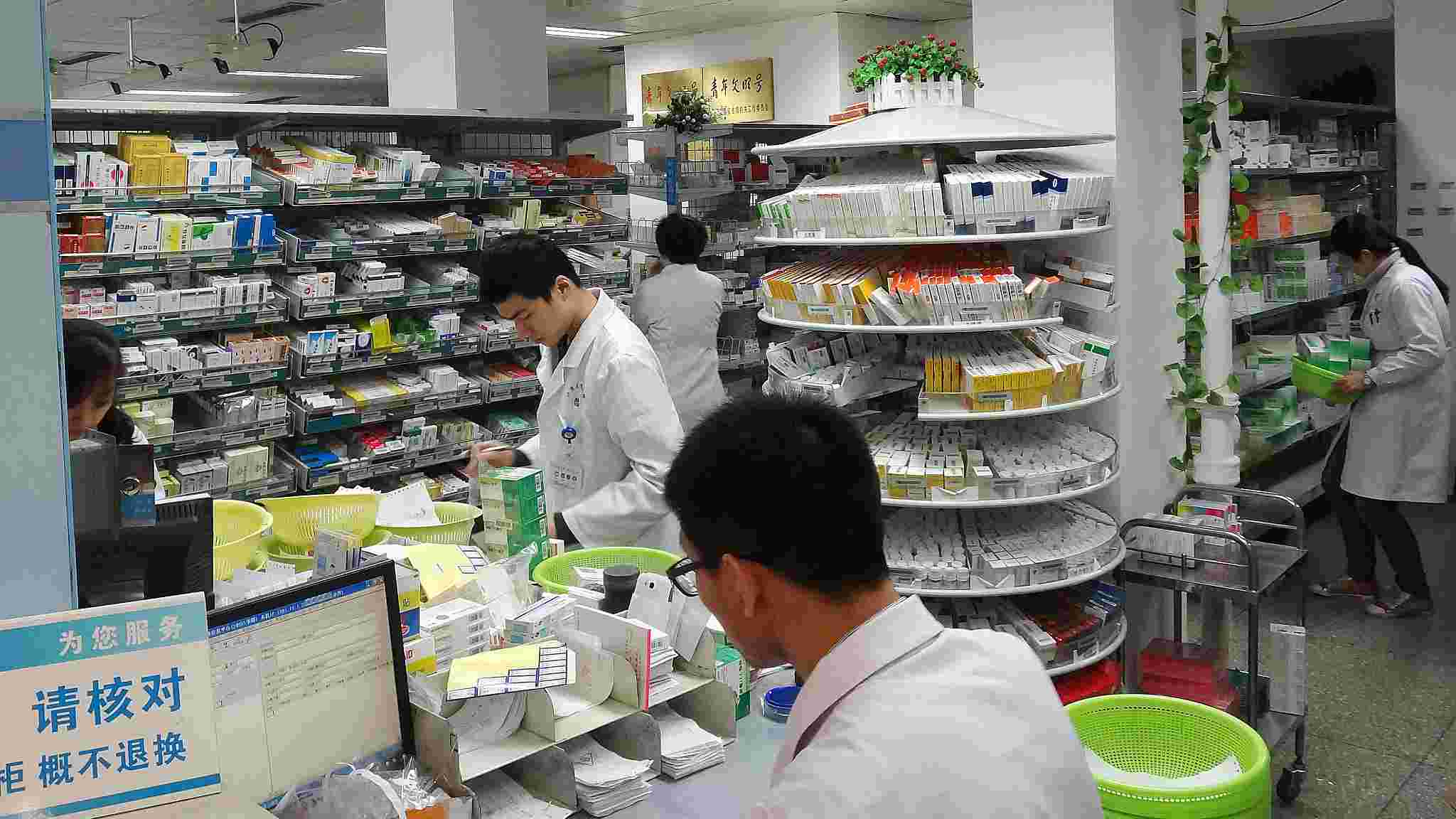
China
20:42, 10-Dec-2018
Buying in bulk cuts drug prices by more than half in China
Updated
20:33, 13-Dec-2018
Henry Zheng

As part of China's efforts to make life-saving medication cheaper, authorities say they have made
headway with a pilot program that purchases certain drugs in bulk.
The trials for a drug procurement
process in 11 cities across the country, including Beijing and
Shanghai, saw drastic price cuts for medication such as gefitinib for
lung cancer and imatinib for leukemia.
The effort is led by
the State Medical Insurance Administration to eventually roll out a
mechanism for hospitals and other healthcare institutions to buy
certain drugs from suppliers en masse through government programs. This bulk buying scheme would presumably acquire large
amounts of drugs at lower costs.
The agency released
the preliminary results of prospective suppliers bidding for the
rights to sell medicine indicated on the procurement list, of which
25 drugs have been successfully procured. The intention is to
award contracts to drugmakers that can sell the medicine at the lowest
prices and at a consistently high quality, among other factors.
The figures released
show that costs for the listed drugs were cut by an average of 52
percent compared to those procured from 2017. Costs for the lung
cancer medicine gefitinib were reduced by 76 percent from a year
before.
Though the prospect
of huge savings on life-saving drugs is enticing for many
Chinese patients under the country's basic health insurance, there
are concerns about profit plunges for the pharmaceutical industry as
a result of government procurement. Bloomberg reported that Chinese
drug stocks have dropped significantly due to investor concerns.
In response to these
worries, the procurement authority said that drugmakers can still
make money even though prices are lower, since those prices have long
been inflated, according to Xinhua News Agency. Now, profits are more
“reasonable,” the authority stated.
Making medication more affordable in the country has dominated public discussion this
year, with a film about a Chinese businessman smuggling cheaper
generic medicine for leukemia patients garnering critical and
commercial acclaim. Chinese Premier Li Keqiang has also publicized the push
for lower drug prices, while the central government eliminated
tariffs on imported cancer drugs back in May.
(Cover: File photo of a hospital in Nanjing, east China's Jiangsu Province, February 3, 2015. /VCG Photo

SITEMAP
Copyright © 2018 CGTN. Beijing ICP prepared NO.16065310-3
Copyright © 2018 CGTN. Beijing ICP prepared NO.16065310-3